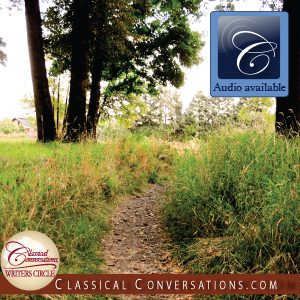Dealing with the awkward pause in a Challenge-level class can be, dare we say it, challenging. As tutors and as parents, our goal is to draw out the answer from our students, but how? One of the crucial elements of a meaningful conversation, oddly enough, is silence. A lengthy pause gives one time to think and time to speak. But how much silence is enough before it becomes…awkward? Ah yes, the awkward pause.
We are all familiar with that moment when silence turns uncomfortable. In everyday conversation it is called the “seven minute lull.” Conversations tend to slow down for a momentary pause approximately every seven minutes, a phenomenon which can sometimes feel rather unsettling. Extroverts, who often prefer that every moment be filled with conversation, may be particularly uneasy. At times the unpleasant feeling can be too much for some, and they may decide to end the conversation prematurely. Often silence triggers commentary on the weather just to fill dead air time. Yes, silence is deemed so awful that we compare it to death!
Not only are awkward pauses a part of life, they actually serve a more powerful purpose than most of us realize. What if there were no silence? What if every question asked by the tutor were followed by an immediate answer? Would there be time to think deeply, become introspective, or form clear connections? Thinking back to my own high school experience, I remember a boy named Scott whose hand shot up instantly whenever the teacher asked a question. In response, the rest of us soon checked out, allowed him to answer every question, and sadly, missed countless opportunities for reflection and deliberation.
This summer I had the extraordinary privilege to be a speaker at several parent practicums. Because our practicum sessions are largely interactive, there are many opportunities for audience members to join in the conversation, adding insight or providing answers to a given question. Jokingly, I informed the parents that I would have no problem sitting in silence as I waited for their answers. I would not be coerced into answering my own questions simply because of a little bit of silence. “I have embraced the awkward pause,” I explained with a smile. I would gladly wait in silence until they had formulated their thoughts and someone volunteered to share. Suggesting that we shouldn’t fear silence, I proposed welcoming it as a tool that allows us to think and process information.
Long pauses are not unique to the classroom and conversation. They are also a part of our walk with the Lord. We are all waiting for something, and during that delay, the silence can be deafening. I know someone who is waiting to meet their future spouse, and others who are waiting to find a house that will meet their growing family’s needs. Maybe you are waiting for a test result, while yet another is waiting for the prescribed treatment. Someone else is waiting for a birth, and there are those who are waiting for death. We are all waiting. And more often than not, there is no other word for that waiting period than awkward.
Webster’s Online Dictionary gave me this definition for awkward: not easy to handle or deal with; requiring great skill, ingenuity, or care.
Sometimes waiting for an answer is so hard we would almost rather receive a bad answer than none at all. Recently, I begged God to hurry the waiting process in my own current struggle. It is so hard, I thought.
“What will the outcome be, God?” I prayed, “I am so uncomfortable.” It was then that my words to the parents at practicum echoed in my heart.
“Embrace the awkward pause.”
Embrace that which is not easy to handle or deal with. It will require great skill, ingenuity, or care.
But how? How do we welcome those moments of silence in our journey through life with Christ?
Whether in the classroom, or in life, the best way to make the most of those waiting moments is to focus on what we do know, and build from there. We see this clearly in Psalm 130:5 when David cries out, “I wait for the Lord, my soul waits, and in his word I hope” (ESV).
While you are waiting, meditate and hope on His Word day and night, focusing on Him rather than on the circumstance. Relinquish control. Resist the urge to do something, anything, even the wrong thing, just to end the nothing. Remember that in those moments, those seemingly silent moments, God often writes the most beautiful parts of our stories. Finally, surround yourself with those who are focused on finding truth and beauty in God’s Word and His world. Therein lies the beauty of community. For silence is far easier to grapple with when you have someone there beside you, walking with you in love.




